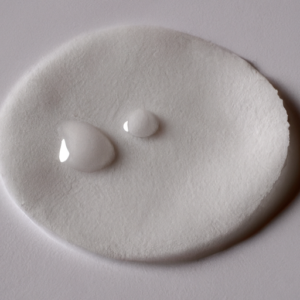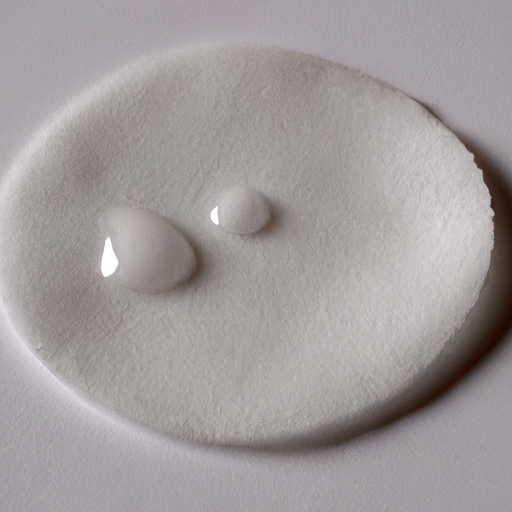Don’t be a Hot Mess: The Skinny on Removing Makeup
Yo, what’s up, gorgeous people? Today, I wanna talk to you ’bout something that’s crucial to keeping your skin healthy and fresh – removing your makeup. Now, you might be thinking, “What’s the big deal, it’s just makeup?” But trust me, it’s a lot more important than you think.
First off, let’s define what we mean by “makeup”. Makeup includes anything you put on your face to enhance your appearance, like foundation, blush, mascara, eyeshadow, and lipstick. And listen, I love makeup as much as the next girl, but it’s important to remember that our skin needs to breathe too. Leaving makeup on overnight clogs pores and causes breakouts and other skin irritations. Ain’t nobody got time for that, am I right?
So, how do we properly remove our makeup? Well, if you’re unsure, don’t worry, I got you. Dermatologists recommend using a gentle cleanser to remove makeup. This is especially important if you have sensitive skin. Harsh cleansers can strip away the natural oils on your skin, causing dryness and irritation. To properly remove your makeup, you want to start by wetting your face with warm water. Then, take a small amount of cleanser and lather it onto your face, making sure to concentrate on areas where you’ve applied makeup. Finally, rinse your face thoroughly with warm water and pat it dry with a clean towel.
How Dermatologists Recommend Removing Makeup: Get it Off Gently
Hey there! As a dermatologist, I can’t stress enough the importance of removing your makeup before going to bed. Leaving it on can contribute to clogged pores, acne breakouts, and premature aging. Plus, it’s just plain uncomfortable.
So how do we recommend removing it? First, choose a gentle cleanser. Avoid harsh, astringent ingredients that can strip your skin of essential oils. A gentle, pH-balanced cleanser will effectively remove makeup residue without leaving your skin feeling dry or tight.

Next, use lukewarm water to moisten your face and hands. Apply the cleanser to your fingertips and gently massage it into your skin, working in a circular motion. Be sure to give special attention to areas around the eyes, nose, and mouth where makeup tends to accumulate.
Rinse your face thoroughly with lukewarm water, making sure to remove all traces of cleanser. Pat your skin dry with a soft towel. Voila! Your face is now makeup-free and ready for a good night’s sleep.
If you have sensitive skin, look for gentle, fragrance-free products that won’t irritate your skin. Avoid ingredients like alcohol and sulfates, which can be especially harsh. You might also consider using a specialized oil-based cleanser that is designed to dissolve makeup without requiring harsh rubbing or tugging.
Remember, every skin type is different, so make sure to talk to your dermatologist about the best way to remove your makeup. They can provide expert advice tailored to your unique needs, ensuring that you’re taking the best possible care of your skin.
Removing Makeup: Tips for Sensitive Skin
Okay, so you have sensitive skin, just like me. Here’s something you should know, just because you have sensitive skin doesn’t mean you can’t use makeup, it simply means you should be extra careful and choose specific products that don’t irritate your skin. Here are some tips that I’ve learned from my dermatologist:
Avoid Certain Ingredients
If you have sensitive skin, it’s important to be aware of certain ingredients that you should stay away from. Some common irritants include fragrances, alcohol, and essential oils. Look for products that are labeled “fragrance-free,” “alcohol-free,” and “gentle on sensitive skin.” Also, watch out for harsh scrubbing agents like microbeads or microdermabrasion scrubs as they can cause irritation and redness.
Try Specialized Products
There are several specialized products on the market that cater to sensitive skin. Micellar waters have become very popular in recent years, as they offer a gentle yet effective way to remove makeup. Cleansing oils are another option to consider, especially if you have dry, sensitive skin. They help to gently dissolve makeup and impurities from the skin without stripping away natural oils.
Another great product to look into is a cleansing balm. These are particularly good for sensitive skin because they have a buttery texture that melts into the skin. They’re formulated to effectively remove makeup and impurities without leaving the skin feeling tight or dry.
Finally, don’t forget to moisturize after removing your makeup. Choose a gentle moisturizer that’s free from fragrances and other harsh ingredients. Your skin will thank you for it!
Wrap it up: Conclusion time!
Phew! We’ve covered a lot of ground. So, what’s the bottom line on removing makeup?
First and foremost, it’s crucial to take off your makeup before bed. Leaving makeup on can clog pores, leading to breakouts and other skin issues. Dermatologists recommend using a gentle cleanser and taking your time to ensure all makeup is removed.
For those with sensitive skin, it’s especially important to be mindful of certain ingredients and to use specialized products designed for delicate skin.
But ultimately, everyone’s skin is a little bit different. That’s why I highly encourage you to talk to your dermatologist about the best way to remove makeup for your specific needs. They may be able to offer personalized advice or recommend product options that will work best for you.
So, go ahead and take that makeup off! Your skin will thank you.
Removing Makeup FAQs
Do dermatologists recommend makeup wipes?
Well, as a dermatologist myself, I prefer recommending my patients to use micellar water instead of makeup wipes. Micellar water is a gentle and effective way to remove makeup because it contains tiny oil molecules that attract dirt and makeup particles, leaving your skin clean and refreshed. Makeup wipes can be too harsh on the skin, leading to irritation, dryness, and even breakouts. Plus, they often contain harsh chemicals that can strip away your skin’s natural oils and cause damage in the long run.That being said, there are times when makeup wipes can be useful, especially if you’re on-the-go or have very little time to spare. If you do decide to use makeup wipes, make sure to choose ones that are gentle and alcohol-free and give your skin a gentle pat-down with a soft towel afterward. Remember to avoid over-scrubbing or rubbing too hard, as this can damage your skin’s surface and leave it feeling sore and tender.Overall, the key to removing makeup effectively and safely is to choose gentle and non-abrasive measures. Whether you prefer micellar water or makeup wipes, always remember to take a few extra minutes to care for your skin, and never skip the cleansing step before you go to bed. Trust me; your skin will thank you!
What is the safest makeup remover?
Okay, so when it comes to removing makeup, as a dermatologist, I always recommend using a gentle and effective makeup remover that won’t irritate your skin. One of the safest makeup removers is micellar water because it’s gentle on the skin and doesn’t require any rubbing or tugging. It’s also great at removing all kinds of makeup, including waterproof mascara and long-wear lipsticks. Another safe option is oil cleansers, which work by breaking down makeup without stripping your skin of its natural oils. Just make sure to choose an oil that’s non-comedogenic and won’t clog your pores. If you’re looking for a more natural option, you can try using organic coconut oil or olive oil. Remember to always avoid harsh or abrasive cleansers, as they can damage your skin’s natural barrier and cause irritation. Also, be sure to remove all traces of makeup before going to bed to prevent clogged pores and breakouts.
How do you remove makeup without disrupting skin barrier?
As a dermatologist, I would recommend using a gentle cleanser specifically formulated for removing makeup. It’s important to avoid harsh scrubbing or rubbing with towels, as that can irritate the skin. Instead, I suggest using a soft cloth or cotton pad and gently massaging the cleanser onto the skin. Additionally, it’s crucial to avoid any products that contain alcohol or fragrances, as those can further damage the skin barrier. Lastly, I recommend double cleansing, which involves using a first cleanser to remove makeup and a second cleanser to clean the skin. By following these steps, you can effectively remove makeup without disrupting your skin barrier.
Remember to always take care of your skin, and to be aware of what products you are using on it.
How do estheticians remove makeup?
So, as a dermatologist, how do I recommend removing makeup? Well, first and foremost, I always suggest using a gentle cleanser that’s formulated specifically for removing makeup. This can be a micellar water, cleansing oil, or cream cleanser. These types of cleansers effectively remove makeup without stripping the skin of its natural oils. It’s also important to use a soft cloth or cotton pad to avoid irritating the skin.If you’re wearing heavy or waterproof makeup, it’s a good idea to use an oil-based makeup remover to ensure that everything is properly dissolved. After cleansing, it’s important to follow up with a toner to balance the skin and remove any remaining traces of makeup. Lastly, I always recommend moisturizing the skin to keep it hydrated and healthy.For estheticians, the process is similar. However, they may use more intensive techniques such as steam or an ultrasonic spatula to gently exfoliate and remove stubborn makeup. They may also use professional-grade products that contain stronger ingredients to effectively cleanse the skin. Overall, whether you’re a dermatologist or esthetician, the goal is to remove makeup without causing damage or irritation to the skin.
Is it OK not to remove makeup?
As a dermatologist, I strongly recommend removing makeup thoroughly before going to bed.
Not removing makeup can lead to clogged pores, acne breakouts and premature aging of the skin.
To remove makeup, I suggest using a gentle cleanser followed by a toner to remove any excess dirt or oil. Avoid using harsh scrubs or face washes as they can strip the skin of its natural oils. Depending on the type of makeup, you can also use a micellar water or oil-based makeup remover.
Don’t forget to also remove any eye makeup with a specific eye makeup remover to prevent any irritation or damage to the delicate skin around the eyes. Finish off with a moisturizer to keep the skin hydrated and supple.
Overall, taking the time to properly remove your makeup will help maintain the health and appearance of your skin in the long run. Don’t skimp on this step!
how do dermatologists recommend removing makeup?
Well, from my experience as a dermatologist, I always recommend the double cleansing method for removing makeup. This means using an oil-based cleanser followed by a gentle foaming cleanser. The oil-based cleanser helps to break down and dissolve the makeup, while the foaming cleanser helps to remove any excess oil and impurities left on the skin. Another great option is to use micellar water, which is a gentle, no-rinse formula that effectively removes makeup and cleanses the skin. It’s important to avoid harsh scrubs or rubbing the skin too hard, as this can irritate and damage the skin. Instead, use a soft, reusable makeup remover cloth or cotton pads to gently wipe away the makeup. Lastly, make sure to follow up with a moisturizer, as removing makeup can strip the skin of its natural oils and leave it feeling dry. Overall, taking the time to properly remove makeup is crucial for maintaining healthy, clear skin. So, remember to be gentle and patient with your skin, and it will thank you in the long run!
